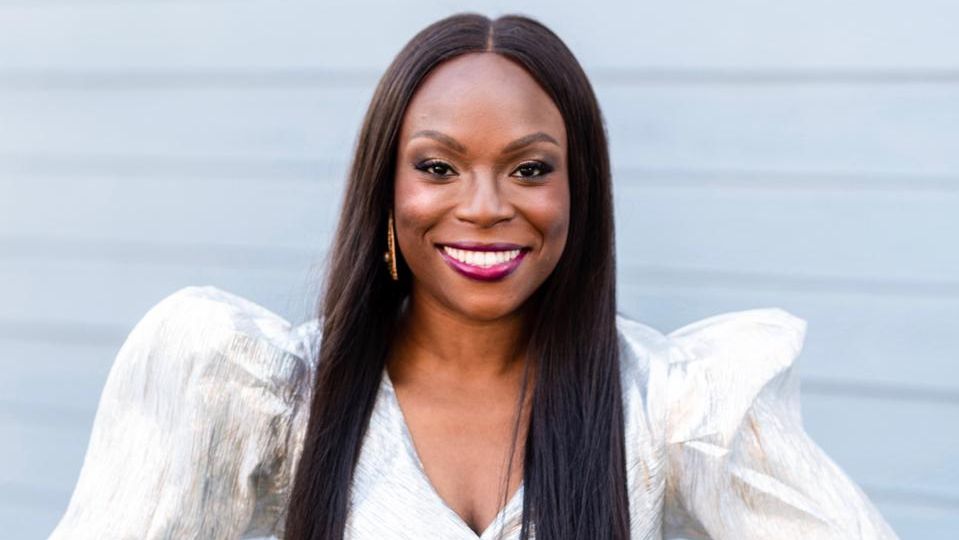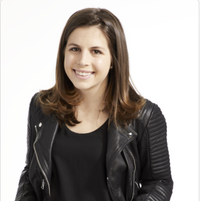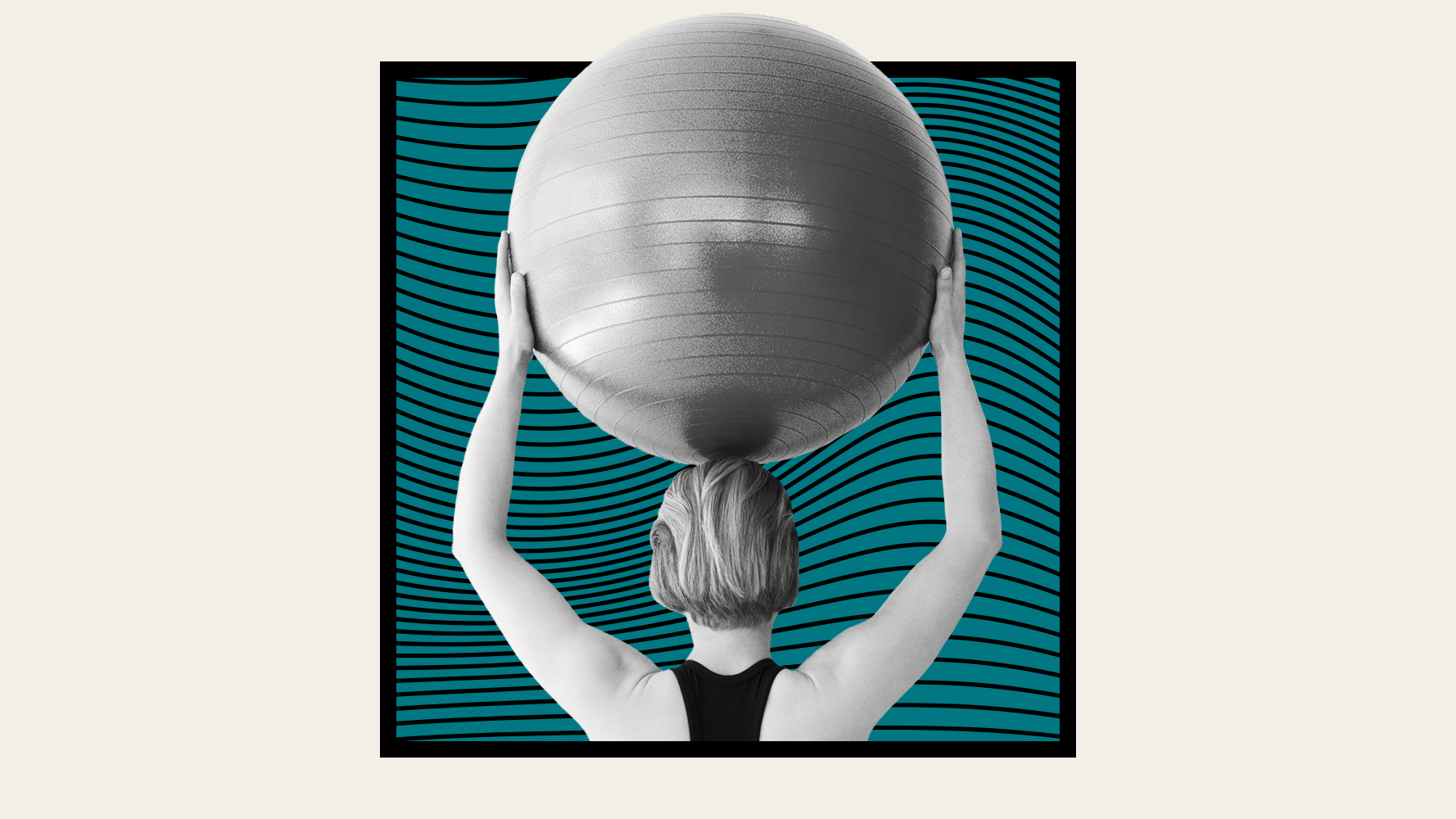Dara Treseder Is the Reason You're Obsessed With Peloton
That's kind of her job. As the company's SVP, head of global marketing and communications, Treseder is responsible for building Peloton's brand and its rider community. Here, she talks ambition, being a Black woman in corporate America, and the value of investing in yourself.


Sourdough starter and TikTok have nothing on Peloton. The fitness brand, with its fervent following, has owned the quarantine market, raking in $1.8 billion last year and growing in paid digital subscriptions by 472 percent since 2020. Dara Treseder, a former exec at Apple and GE, signed on as SVP, head of global marketing and communications, during the thick of the pandemic in August 2020. In her role, she oversees Peloton's marketing efforts, consumer strategy and insights, communications, creative, and drives the company's growth and international expansion. (Talk about a long list of responsibilities.) She says that, for her, much of the value she finds in her career is through making impact, and she's already done that: Since joining the team, Peloton announced a partnership with longtime member Beyoncé, launched their #MyPelotonReason campaign, celebrating members' stories, and continued to grow their hyper-loyal community of riders who get really, truly pumped about jumping on a spin bike every day.
So how does Peloton make everything they do feel so... on brand? Treseder's answer is, understandingly, infuriating to many fellow marketers: "It's because we're not trying," she says. "I was talking to a friend of mine who is a marketer at a different company, [and told her that]. She gave me a big eye roll. She was like, 'whatever girlfriend.' But it's exactly that." For Treseder, one of the main ingredients in the Peloton-level-successful secret sauce is authenticity—a buzz word, yes, but one she says the brand truly lives by. "If it's not authentic, we're not going to do it. I think that is such a key differentiator for us."
Peloton might "not be trying" with their marketing, but Treseder has been grinding and hustling her way up the corporate ladder for years. Ahead, she shares how she earned herself a top spot on the corporate leaderboard and how she's shepherding Peloton into a post-pandemic future.
Marie Claire: What was behind your desire to be an executive?
Dara Treseder: I was born and raised in Nigeria. My mother was a source of inspiration to me, as I think is the case for many young women growing up around the world. I was always a very driven child, and my mom nurtured that. I'll never forget, one day, I was telling her something and she said, "You know, Dara, you don't have to always accept the world as it is. You can think about how you shape the world as it should be." And that really stuck with me. It was this idea that even though I was this little Black girl living in West Africa, I could have an impact on the world
My mother used to say two things to me: One, Ìwà l'ẹwà, which means "character is beauty" in my Yoruba language. She always talked about the importance of your character and who you are and how you show up. That has been a guiding principle in my life. The second is "ambition with contentment." I'm not someone who's ambitious [for the sake of] ambition. My ambition is grounded in positively impacting others. I seek impact, not glory.
MC: What is something you learned early in your career that shaped your journey?
DT: For certain demographics, people look at them and they're like, "Oh my God, they're young, they're geniuses. They're brilliant. These people are going to change the world." But for other people, it's like, "You need to wait your turn." And unfortunately, the people that are told "you need to wait your turn" are people like me, Black women.
Get exclusive access to fashion and beauty trends, hot-off-the-press celebrity news, and more.
When I came into the corporate world, it was clear to me that I was undervalued. Once, at my review, the leader of the organization said, "You've done such a great job. But your bonus is zero. You're an immigrant. You should feel grateful that you're here." That was the moment for me that it clicked that there were two Americas: one for the privileged that says you deserve everything, [and one] that constantly questions you and doubts you. While other people are going to be given opportunities, I have to create them for myself. I'm not doing it just because of myself; I'm doing it because it's important that young Black women see me and think, I can be this too.
MC: What is the biggest career lesson you've learned?
DT: Take a bet on yourself. I'll never forget when I thought, I'm ready to be a C-level executive. I felt like I was there, but I also felt that there were things that I still needed to learn. I sat down with my husband and I said, "I know that I have what it takes, but I think that I need some executive coaching because I want to be the best at what I do. I want us to pay for it. I want us to invest in this because I want this to be really tailored to what I need to be." [I had a plan], I exceeded it, and we crushed it. I made that bet on myself. Nobody made it for me.
I made that bet on myself. Nobody made it for me.
MC: Why did you decide to join Peloton?
DT: I want to be at a company that cares about things that deeply matter to me. What I love about Peloton is that we were one of the first brands to commit to becoming an antiracist organization. You can smell performative allyship from a mile off, especially as a Black woman. Our pledge is a four-year, $100 million investment in fighting racial injustice and inequality. I'm proud that what we're doing as marketers is simply amplifying the great work that's being done, as opposed to performative virtue signaling. That's what makes me proud.
I'm not here just painting a picture. I'm actually only reflecting a little piece of the amazing work that is happening. We're supporting nonprofit partners that are fighting against racial injustice. We are increasing accessibility to our products and our content in underserved communities. And that is so powerful.
MC: What is the biggest challenge you have had to overcome as a leader, and what is your biggest success?
DT: I think one of the [challenges] is the unfortunate reality of being a Black woman in America. Everybody else gets the benefit of a doubt, and we—even in spite of proving ourselves—have to reprove and reprove. The thing I have had to overcome is getting more bold and courageous about advocating for myself. Michelle Obama writes about [an] "angry black woman" in her book Becoming. As a Black woman in a senior position, it's almost like Oh my God. Do I say this? I don't want this to come across wrong. It's not that people, for the most part, might even be intending to perceive things in that way, but there's unconscious bias. What I say might be seen very differently than [if my] amazing husband, William [might say it] as a blonde, white man. We might say the same thing, but people receive it in different ways.
This is something I've been working on since when I first became a C-level executive as a CMO of the GE business innovation center. [The challenge is] the boldness and the courage to advocate for what needs to happen and not being worried about negative stereotypes, and how that is hindering me from being my full self. It's showing up as the fullest leader that I can. It's just a constant journey. It's a constant challenge.
What brings me joy is the team, coming together to drive impact. That's what brings me joy, getting up every day and working with these phenomenal people.
MC: As a marketer, how do you find the line between building authentic community and, ultimately, pushing product?
DT: The key thing I think marketers have to do—and I think this is one of the reasons I've been successful in my career, because I understood this from very early on—is you have to do it as a team sport. When it's just your campaign, it falls short. It's got to be integrated with how the business is running. As marketers, we're first and foremost business people. And we need to think about how are we working together with the infrastructure and the business [teams], to drive at this big brand goal. Community has always been at the heart of everything we do. And we recognize the power of empowering those communities. We also listen to our members. This isn't a one-way relationship, right? It's not just about asking you for stuff, but it's about building a relationship that is mutually beneficial.
MC: Peloton's marketing has evolved. In 2019, the brand made headlines for a controversial commercial in which a husband gifts his wife a bike; it was called sexist by some.
DT: I can't speak to what happened before I got to Peloton. What I can say is that as we are continuing to evolve as a brand. Our marketing is not just a reactive, responsive thing, but it's really deeply shaped by how we are creating and reflecting culture.
MC: Peloton recently had to recall more than 125,000 treadmills after the Tread+ was linked to the death of a child and other injuries. How does Peloton earn back the trust of consumers?
DT: Everything we do at Peloton is centered on improving the lives of our members. Every challenge is an opportunity to learn, grow, and discover better ways to serve our members. We’re continuing to follow our North Star of putting members first. This foundational approach has served us well and will continue to inform how we move forward as a brand and business.
MC: What's the plan as gyms reopen?
DT: Being a Peloton member adds value to your life. During the pandemic, it was helping keep you connected to people, helping with your physical and mental health. Guess what? After the pandemic, it's still going to help you with that.
Interview edited for length and clarity. A version of this story appeared in the Summer 2021 issue of Marie Claire.
RELATED STORY

Megan DiTrolio is the editor of features and special projects at Marie Claire, where she oversees all career coverage and writes and edits stories on women’s issues, politics, cultural trends, and more. In addition to editing feature stories, she programs Marie Claire’s annual Power Trip conference and Marie Claire’s Getting Down To Business Instagram Live franchise.
